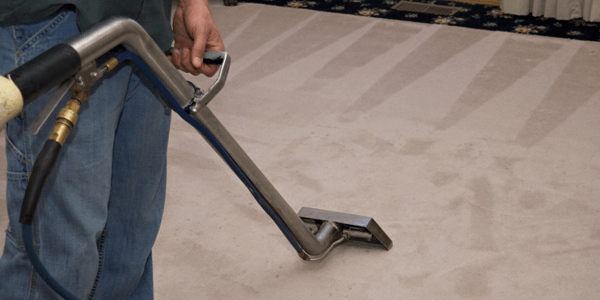
Carpet Cleaning
There are "wet" methods and "dry" methods of cleaning your carpets, but for the most part the main forms of cleaning are:
-

-
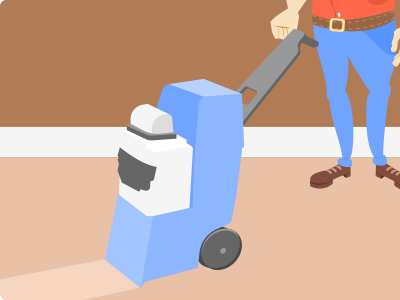
Carpet Shampooing
-
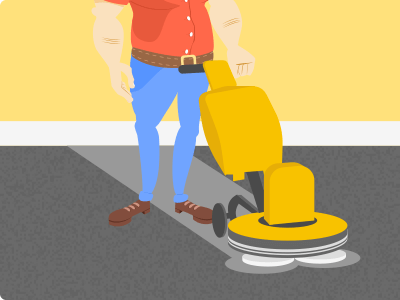
Encapsulation
-

Bonnet Cleaning
-
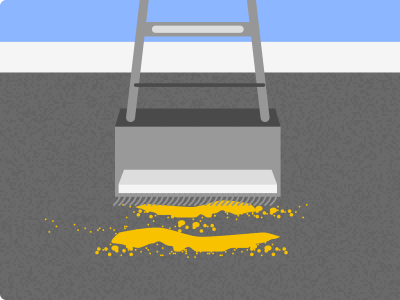
Dry Compound
-
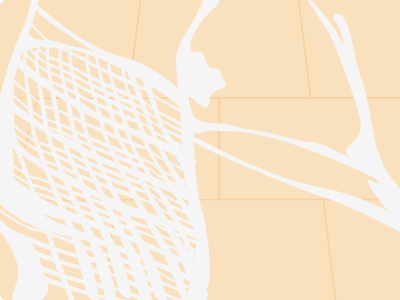
Dry foam
"Wet" Methods
Typically carpet cleaning breaks down mainly into wet and dry methods (3). The main difference being whether or not the method requires water to be forced into the carpeting. Wet methods tend to be much deeper of a cleaning method and for the ultimate in cleaning power, is the prefered technique to use (4). Here's a quick rundown of the different types of wet carpet cleaning available today.
Back to topHot Water Extraction Cleaning
Also known as steam cleaning or wet cleaning, this method relies on hot water being pressurized into the carpet fiber to get out even the toughest stains. The carpet is shampooed first, and then hot water is forced through the carpet. After sitting for roughly ten or fifteen minutes, the solution is then extracted from the carpet via vacuum. This is the most widely used method for carpet cleaning, as it's straightforward, powerful, and gets out tough stains. Dirt doesn't stand a chance. With that being said, the dry time for this method is particularly long, with some homes vouching for other kinds of cleaning to avoid waiting for their living room to dry (5). With that being said, many experts agree that the only way to get deep cleaning in both commercial and residential carpeting is via this method (6).
- • Pros
- • Effective
- • Common
- • Removes any soil
- • Recommended for large areas and industrial sized carpets
- • Cons
- • Long dry time
- • Expensive
- • Chemicals and equipment
Carpet Shampooing
Sometimes called the "dry foam" technique, carpet shampooing is basically the same as shampooing your hair, but with carpet fibers instead (7). Essentially the process consists of working in the solution as deep as possible, allowing it to set, and then rinsing the shampoo away with water. It's very, very similar to shampooing your hair, hence the name. This method takes much less time than the hot water extraction process.
- • Pros
- • Fast
- • Dries fast
- • Cons
- • Not as thorough
- • Doesn't clean as deep
Dry Carpet Cleaning
This refers to any no moisture or at the least, VLM (very low moisture) process of cleaning the carpets. By their nature, dry carpet cleaning tends to be a more green technology in most cases. Overall dry carpet cleaning is cheaper and easier than alternative methods.
Back to topEncapsulation
This unique method uses a certain solution to crystallize soil particles in the carpeting. This is usually done with a brush or advanced cleaning machine. The crystallized soil essentially becomes dust that you can then remove via vacuum. This method is highly recommended for commercial use (8).
- • Pros
- • Low moisture
- • Affordable
- • Great look
- • Environmentally friendly
- • Cons
- • Not as deep
- • Should be followed up by hot water extraction periodically
Bonnet Cleaning
Cleaning with an absorbent pad is also called bonnet cleaning. This is a very fast, cheap, and efficient way to clean the surface of your carpeting, but it is not recommended to replace a good deep cleaning (9). First, the carpet is vacuumed. Then, the chemical solution is sprayed on top. Next, the solution stays on for a while to allow the chemicals to do their job. Finally the cleaning towel (which does resemble a bonnet) is used to remove the solution.
- • Pros
- • Affordable
- • Fast process
- • Cleans surface of carpet
- • Cons
- • Does not do deep cleaning
- • Might grind dirt into carpeting
Dry Compound
Dry cleaning with an absorbent compound is also another method to remove stains in carpet fibers (10). This system is perfect for small stains in a household, as it can be easily scrubbed in using a household brush. Essentially this is for homes with small kids or pets that make a mess on the carpet. Otherwise larger jobs may require some machinery in apply. Simply vacuum it up when done.
- • Pros
- • Simple
- • Easy
- • Efficient
- • Cons
- • Unable to deep clean
- • Unable to do industrial jobs
Dry foam
Otherwise known as the rotary shampoo method, dry foam is a solvent whipped into a foam, as the name would suggest. The foam is distributed the same way as the rotary shampoo method. This means that the aerator is dispensing the foam horizontally via the rotating brushes (11). Afterwards a vacuum is used to clean up the applicable area.
- • Pros
- • Fast
- • Cheap
- • Easy to use
- • Cons
- • Not high temperature
- • Can't bust tough stains
References
- "Understanding The Different Types of Carpet Cleaning Machines". Vacuum Companion. Retrieved 8 August 2017.
- Romano, Jay."YOUR HOME; Five Ways To Clean A Carpet". New York Times. Retrieved 8 August 2017.
- "Top 5 Types of Carpet Cleaning Methods used by Companies". de Hygenique. Retrieved 8 August 2017.
- "Dry vs. Wet Carpet Cleaning - Which Is Really The Best?". Southern Dry Carpet Cleaning. Retrieved 8 August 2017.
- Gaetani, Haley."Rug Care Tips & Secrets". ACS. Retrieved 8 August 2017.
- "Deep Cleaning Extractors Testing Criteria". CRI. Retrieved 8 August 2017.
- "How to Shampoo a Carpet". Wikihow. Retrieved 8 August 2017.
- "Encapsulation Cleaning". Jon-Don. Retrieved 8 August 2017.
- Klucznik, John."Does Bonnet Cleaning Really Work?". Cleanfax. Retrieved 8 August 2017.
- "Dry Carpet Cleaning". Wikipedia. Retrieved 8 August 2017.
- Hilton, Michael."Dry Foam Carpet Cleaning". The Carpet Buyers Handbook. Retrieved 8 August 2017.
Select your Carpet Cleaning project
Service Cost Calculator
Enter service and
zip code to view
cost breakdown
